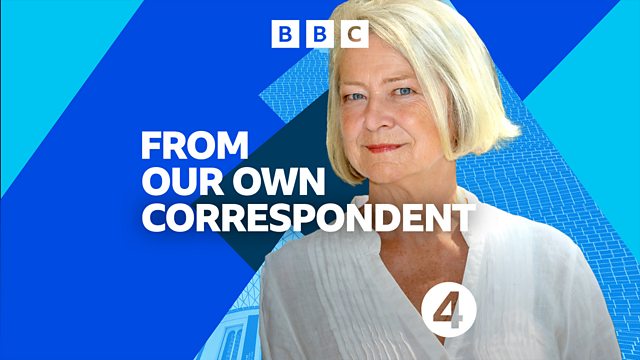29/01/2011
The full story: correspondents in Lebanon, India, Afghanistan, Senegal and Belarus tell it as they see it.
Shocking evidence of what the Taleban call justice.
The lessons for modern Lebanon in the story of the ancient Phonecians.
We explore a town Belarus where the spirit of Lenin still marches on.
And a correspondent goes in the footsteps of a master as he learns how to survive on the streets of Dakar.
The war in Afghanistan grinds on. The American-led forces and their Afghan allies have now been fighting the Taleban for nearly a decade. At stake is what kind of country, what kind of society might emerge - what its values might be, how it might dispense justice. And our correspondent in Kabul, Quentin Sommerville, has just come across a reminder of what the Taleban regard as acceptable punishment.
For six years now there's been one big burning question at the heart of Lebanese politics. And it is, "Who killed Rafik Hariri?" He was the prime minister who died in a huge bomb blast back in 2005. There's been a long investigation that has fuelled suspicions and deepened Lebanon's dangerous divisions. Last month the powerful Hizbollah movement believed that it was about to be accused of the killing. But it struck first - walking out of the ruling alliance, and bringing down the government. In Beirut, Kevin Connolly has been watching Lebanon come to terms with the upheaval.
The result of the recent election in Belarus was certainly no surprise. President Lukashenko is said to have won nearly eighty per cent of the vote. But independent observers were deeply unimpressed. They said the election fell well short of democratic standards. And several opposition candidates were arrested during protests after the poll. Under Mr Lukashenko's long rule, Belarus has earned a reputation so dire that the United States has described the country as Europe's "last outpost of tyranny". But the authorities there have been trying to tell James Coomarasamy that their critics are "mistaken".
There was a time when it seemed that the solution to world poverty lay in what was called "microcredit." The idea involves giving women in the poorest countries tiny loans to invest in very small business ventures - like buying a few chickens and then starting to sell eggs. And countless people have indeed benefited over the years. But it seems that microcredit - like any form of credit - can also be a road to ruin and despair, as Madeleine Morris has been finding out in rural India.
Almost every foreign correspondent has someone that they need to thank. They know that they could have achieved very little without the help of a local colleague. This is the figure who's helped steer them through all the political and cultural complexities of a strange new society - the figure who's helped the correspondent sound like they know what they're talking about. And on a recent trip to Senegal, David Goldbatt was lucky enough to work with one particularly impressive lady...
Last on
Chapters
-
Introduction
Duration: 00:26
Tension dies down in Lebanon
Kevin Connolly watches the country come to terms with its political turmoil.
Duration: 05:28
Taliban justice
In Afghanistan, Quentin Sommerville sees footage of the stoning to death of a couple accused of adultery.
Duration: 04:44
Credit victims
Madeleine Morris in rural India discovers how credit given to small businesses can sometimes lead to ruin and despair.
Duration: 05:30
The 'other side' of Belarus
The authorities seek to assure James Coomarasamy that the country's poor reputation for democracy is unjustified.
Duration: 05:40
Survival tips for journalists
David Goldblatt in Senegal sings the praises of a local 'fixer' who goes the extra mile to help foreign journalists working on location.
Duration: 05:44
Broadcast
- Sat 29 Jan 2011 11:30Βι¶ΉΤΌΕΔ Radio 4

